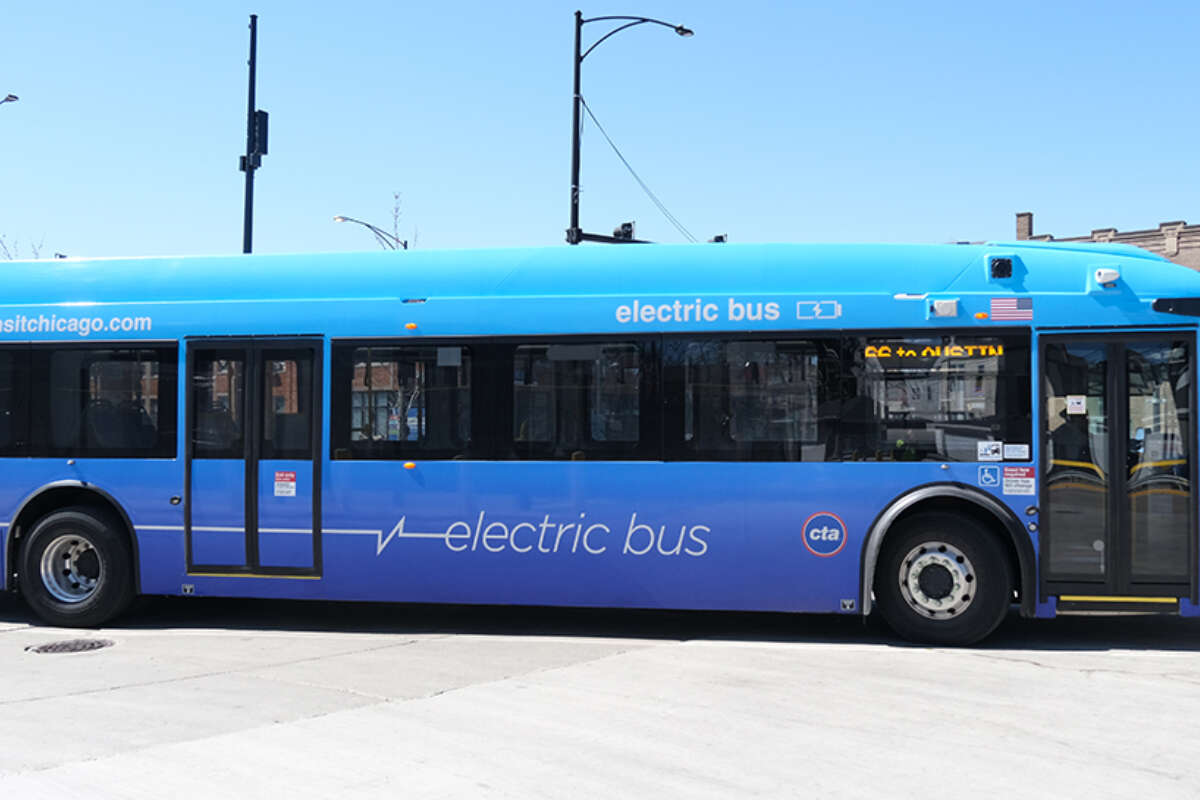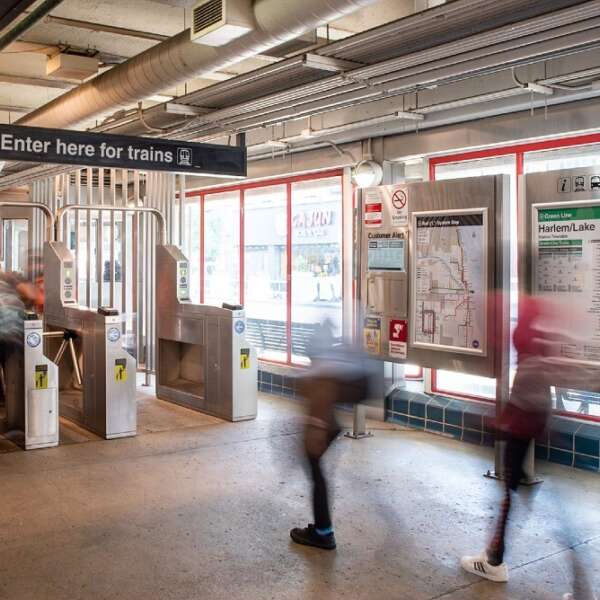How the Chicago region’s transit system is going even greener
April 20, 2022
April 20, 2022

Reducing carbon emissions and reliance on fossil fuels has never been more important, and increasing transit use is one of the strongest tools we have in the fight against climate change. In the United States, exhaust from cars, trucks, and planes is the single biggest source of carbon dioxide emissions—the largest contributing factor to climate change (United States Environmental Protection Agency). Public transportation offers our region the greatest opportunity to reduce carbon emissions through mode shift. For example, a standard bus is able to remove 31 cars from the road, while one CTA railcar can remove 36 and one Metra railcar can remove 83 (U.S. Department of Transportation Federal Highway Administration’s Summary of Travel Trends, 2017). Bus emissions per passenger mile are 33 percent lower than cars, and passenger trains are 76 percent lower, according to the Metropolitan Planning Council’s Transit Means Business report from 2018.
Aside from the importance of riding transit itself, the RTA wanted to take Earth Week to recognize the efforts of CTA, Metra, and Pace to improve the sustainability of their modes by converting to electric fleets and exploring other climate-friendly actions. To learn more, representatives from CTA and Pace will present to the RTA Board of Directors at 9:00 a.m. on Thursday, April 21. Livestream the meeting here, and read on for a summary of the CTA, Metra, and Pace’s work toward a greener region.
Subscribe to our Newsletter
Related Articles
 Why fully funding paratransit service and reduced fare programs is key to closing the transit budget gap
Why fully funding paratransit service and reduced fare programs is key to closing the transit budget gap
With transit facing a fiscal cliff in 2026, fully funding critical programs like ADA paratransit service and free and reduced fare programs is one key to clo...
February 18, 2025 New stations on CTA Green Line, Metra UP-N line increase transit access for residents, riders
New stations on CTA Green Line, Metra UP-N line increase transit access for residents, riders
In 2024, CTA and Metra opened two new stations: the Damen station in Chicago’s Near West Side neighborhood along CTA’s Green Line and the Peterson/Ridge stat...
January 28, 2025 2025 Regional transit budget available for public comment, foreshadows risk to system’s future without fiscal cliff solution
2025 Regional transit budget available for public comment, foreshadows risk to system’s future without fiscal cliff solution
The RTA has released the 2025 Regional Transit Operating Budget and Five-Year Capital Program for download and public comment. The budget comes as an operati...
November 15, 2024 With equity at the forefront, CTA, Metra, and Pace open new facilities, prioritize upgrades in south and west communities
With equity at the forefront, CTA, Metra, and Pace open new facilities, prioritize upgrades in south and west communities
This year, CTA and Pace have opened or advanced various new facilities in south and west communities throughout the region, and Metra has prioritized upgrade...
October 9, 2024 New project management oversight report highlights more than 100 projects representing $8.2 billion in capital investments
New project management oversight report highlights more than 100 projects representing $8.2 billion in capital investments
The RTA’s Project Management Oversight (PMO) program ensures that the Service Boards—CTA, Metra, and Pace—are spending capital funds and managing their infra...
June 27, 2024 Transportation Tuesday recap: Improving and expanding the transit system strategically
Transportation Tuesday recap: Improving and expanding the transit system strategically
With last year’s adoption of Transit is the Answer came 15 new evaluation metrics that comprise a strategy for evaluating and selecting capital projects. Now...
May 30, 2024